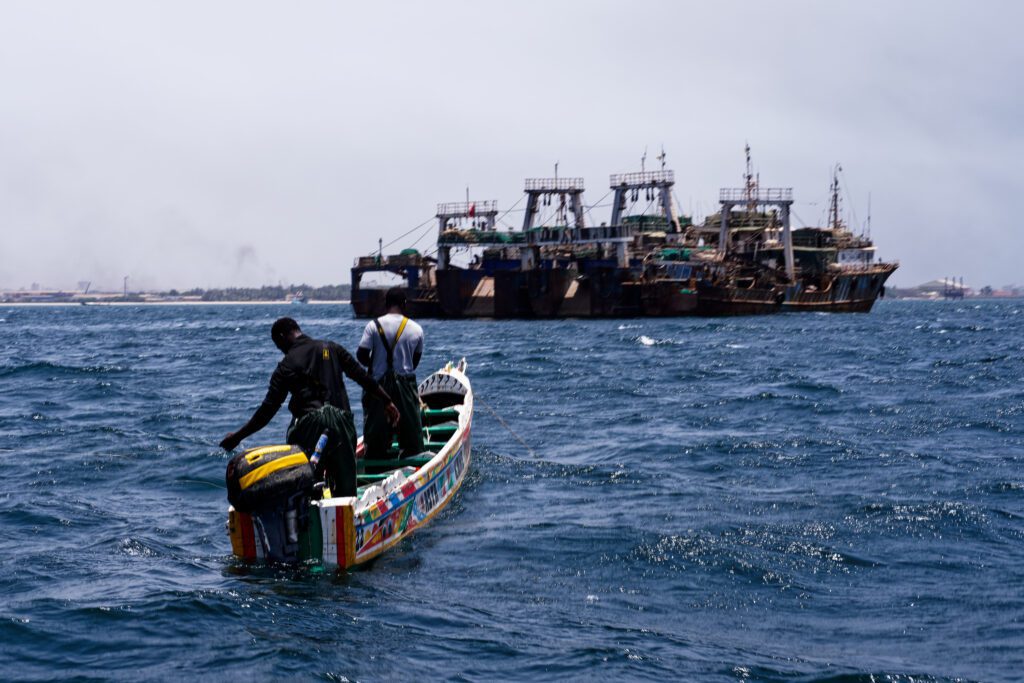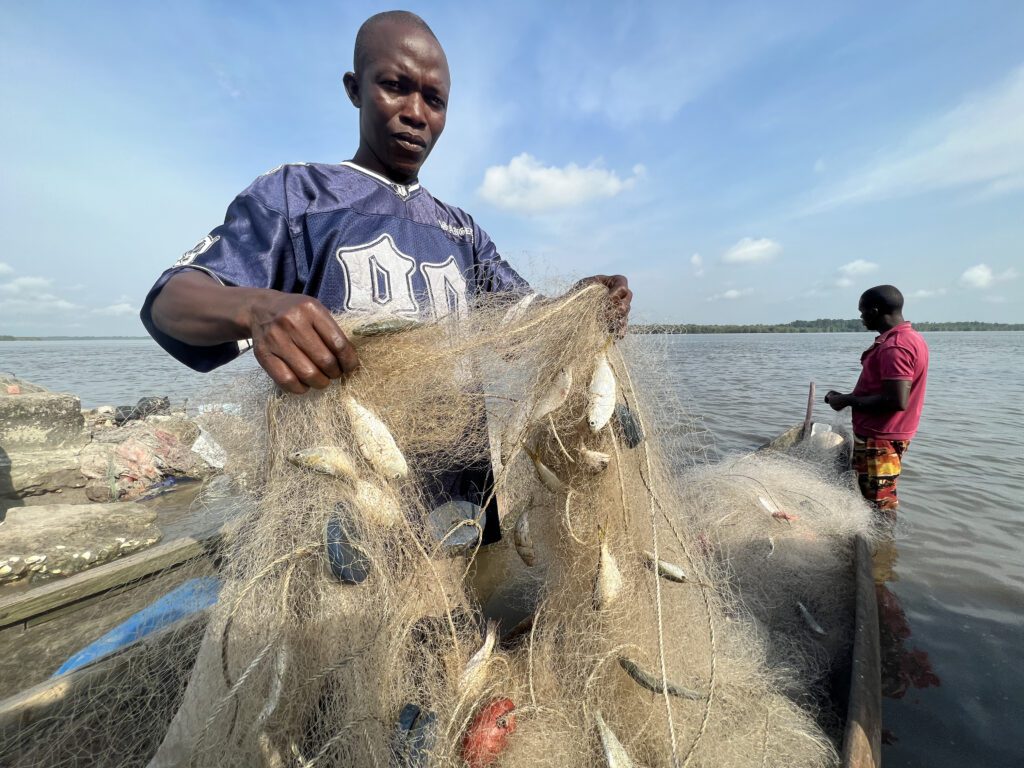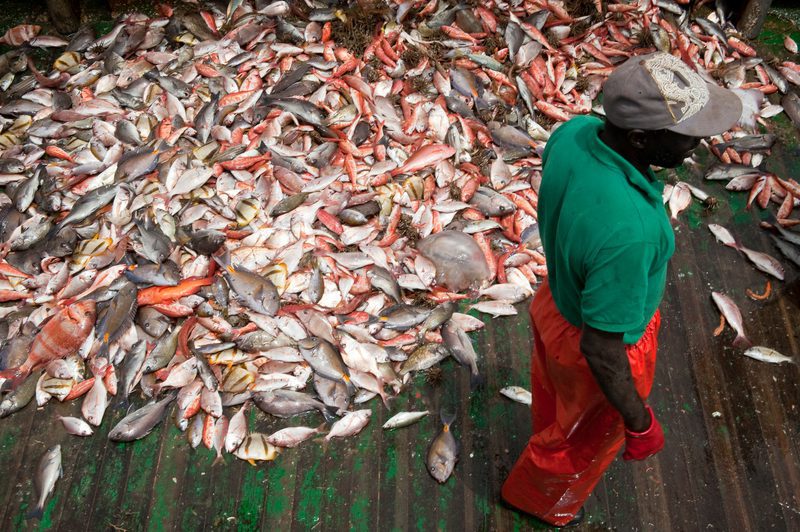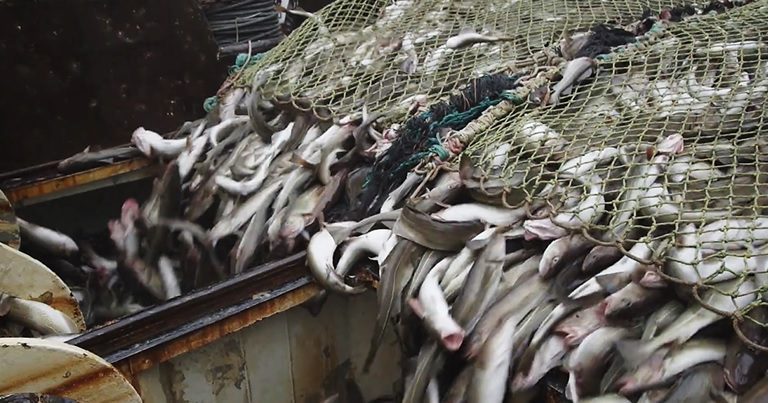Moving beyond ecosystem impacts
Dear TBT Coalition supporter,
|
Bottom trawling - the practice of dragging weighted nets, metal plates and chains along the seabed to catch fish - is associated with a host of environmental impacts. It is the only fishing method that disturbs seabed ecosystems, catches large numbers of non-target animals, and is associated with driving fish population declines. These unique characteristics, coupled with the scale at which bottom trawling is practised, set it apart from other fishing methods in terms of its environmental footprint.
|
However, bottom trawling’s social and economic impacts are not as well understood. Conservation science has historically failed to appreciate the natural and social dimensions of environmental problems in equal measure, and this has resulted in a blind spot in fisheries and conservation policy. But emerging research, which aims to assess the impact of bottom trawling on coastal communities, paints a worrying picture.
|
While there are some social benefits to bottom trawling - creating jobs at sea and on land and providing high volumes of cheap seafood being the most obvious - new research is uncovering relationships between rampant bottom trawling and food and livelihood insecurity, conflict, and the loss of generations-old fishing cultures.
|
A new investigative report produced by the Environmental Justice Foundation (EJF) with funding and support from the TBT Coalition interrogates the role of bottom trawling in Senegal's worsening fisheries crisis. The report, released in October, details the ways in which bottom trawling, particularly when carried out by foreign vessels, risks dispossessing almost 170,000 people of their livelihoods, sparking violent conflicts and driving food insecurity in highly vulnerable coastal communities.
|
This research bolsters testimonies that small-scale fishers and community members have been trying to amplify for decades, but which have been drowned out by powerful fishing lobbies or deprioritised in mainstream research spaces. Speaking at the coalition’s latest webinar on “Strengthening Inshore Exclusion Zones”, representatives of the Canoe and Fishing Gear Owner’s Association of Ghana emphasised the importance of bottom trawling exclusion zones in safeguarding small-scale fisheries and the communities that depend on them. The webinar gave space to other members of the coalition working in West Africa, including the African Marine Mammal Conservation Organisation, OceanMind and EJF, to share solutions for strengthening exclusion zones using different surveillance, reporting and legislative methods.
|
To find lasting and equitable solutions to bottom trawling’s impacts we must take into account its complex environmental, social and economic dimensions. This means investing in innovative social research, amplifying first-hand testimonies from fishers and community members, and ensuring that decision-makers take a holistic approach to regulating bottom trawl fisheries.
|
Assessing bottom trawling’s impacts on a narrow range of marine species alone - as fisheries scientists have done in the past - will result in blunt, overly simplistic fisheries policy that underplays impacts on people’s lives and livelihoods. The TBT Coalition is committed to strengthening our understanding of bottom trawling’s social and economic impacts - particularly in more vulnerable and data-poor regions - to inform nuanced, human-centred solutions.
|
We hope you will join us on this journey to tackle bottom trawling, support sustainable fisheries and restore our oceans!
|
|
The Transform Bottom Trawling Coalition team.
|
|

|
|
Senegalese fishers are forced to compete with industrial bottom trawlers from Europe and China for access to fishing grounds © Blue Ventures
|
|
|
Coalition Updates
|
New investigation uncovers social and economic impacts of bottom trawling on Senegalese communities
EJF, with support and funding from the TBT Coalition, has published a new investigative report into the environmental and socio-economic impacts of bottom trawling in Senegal.
|
Senegal’s rich fisheries historically played a vital role in employing around 600,000 people and feeding the nation’s rapidly growing population of nearly 17 million people. However, artisanal fishers – the beating heart of its fisheries sector and society – are in danger.
|
The report finds that bottom trawling is destroying the marine environment and dispossessing 169,000 people of their livelihoods. While the artisanal fishing fleet has been over capacity for some time, the more destructive bottom trawl fleet increased by 12.5% between 2014 and 2018. As it grows, its unsustainable fishing practices put immense pressure on these fisheries, causing resources to dwindle and poverty to rise. What’s more, much of the fish caught by bottom trawlers is exported to high-income countries. Between 2008 and 2018, exports of fish products almost quadrupled, overtaking local consumption, and in 2021 Senegal exported over 300,000 tonnes of fish products.
|
The plundering of the country’s marine resources by vessels from the EU and China creates an unjust competition between these industrial trawlers and artisanal fishers and further aggravates food insecurity in the region, with a high proportion of their catch being exported.
|
|
The report includes eight recommendations for Senegalese authorities and civil society to prevent and reduce bottom trawling impacts. It is critically important that these recommendations are heeded, as failure to do so could jeopardise the livelihoods and food security of thousands of people in coastal communities.
|
|
|
|

|
|
Fish is the cornerstone of food security in Senegal's coastal communities. Excessive bottom trawling is driving fish populations to decline, sparking conflicts and leading to food and livelihood insecurity. Watch this video to learn more.
|
|
|
Coalition webinar explores approaches to strengthening bottom trawling exclusion zones
Inshore Exclusion Zones (IEZs) are used by coastal nations to reduce the negative impacts of industrial fishing - particularly bottom trawling - on small-scale fisheries and marine ecosystems. However, ensuring vessels adhere to IEZ regulations is a constant challenge.
|
The TBT Coalition hosted a webinar to understand why well-enforced IEZs are necessary and which tools are available to support IEZ surveillance. The webinar focused on the West Africa region and included speakers from:
|
The TBT Coalition is calling on all coastal states to expand, establish and strengthen IEZs in which bottom trawling is prohibited and to which small-scale fishers have preferential access.
|
|
You can learn more about the impacts of bottom trawling on small-scale fishers by exploring the coalition's Fisher Testimonies map.
|
|

|
|
Inshore Exclusion Zones are integral to the protection of inshore fisheries in West Africa. However, enforcement is a constant challenge © Blue Ventures
|
|
|
#SayNoToScampi campaign launches in Scotland
Scottish coalition member Open Seas is calling on supermarkets to stop stocking scampi until the serious environmental problems in its supply chains are resolved.
|
Scampi is made from the tails of langoustines, also called Nephrops prawns. These small crustaceans live in seabed burrows in Scotland's coastal waters.
|
The scampi industry relies on bottom trawling to catch langoustine. But this high-impact method of fishing harms marine life and habitats by dragging heavy nets across the seabed. The evidence shows that at least 1kg of marine wildlife is caught, killed and discarded for every 1kg of langoustine caught for scampi.
|
This bycatch includes commercially important fish, as well as other marine species like sharks, rays and other crustaceans – and even critically endangered protected species like the flapper skate.
|
Scampi is a supermarket staple, but 80% of UK shoppers don’t know what it’s made from. That means the scampi industry’s huge environmental footprint is hidden from public view.
|
This month the team at Open Seas launched a campaign to change that – and they need your help to tell supermarkets to #SayNoToScampi until the industry cleans up its act.
|
|
UK readers can tell supermarkets to “say no to scampi” by clicking the link below.
|
|
|
|

|
|
Watch this video to learn more about the environmental impacts of the scampi in your supermarket © Open Seas
|
|
|
|
Bottom Trawling News
|
Africa
|
The Nigerian Navy handed over a bottom trawler and its 14 crew members to the Federal Department of Fisheries in Bayelsa State for fishing in an area reserved for artisanal fishers.
|
|

|
|
Bottom trawling inside artisanal fishing zones can lead to food insecurity and conflict © Punch
|
|
|
Americas
The Maritime Executive
US bottom trawlers pulled in ten orcas in their nets over the summer, including nine that were already dead and one that was released alive, its fate unknown.
|
|

|
|
A spate of orca catches has led the Center for Biological Diversity to file a lawsuit against NOAA's National Marine Fisheries Service
|
|
|
Asia and Asia-Pacific
|
Official information obtained by Newshub shows more than 6000 kilograms of protected corals and sponges were pulled up by commercial trawl vessels in the space of just 12 months.
|
|

|
|
A 350-year-old piece of Paragorgia coral caught by bottom trawlers fishing in New Zealand waters © Greenpeace
|
|
|
Europe
Ahead of MedFish4Ever conference NGOs have called on Mediterranean governments to end illegal bottom trawling.
|
Popular seafood has a 'big environmental price tag', warns Scottish charity Open Seas.
|
|
New plans to protect Jersey’s waters would increase bottom trawling exclusion zones from 6.5% of the Island’s territorial waters to just over 27%.
|
|

|
|
|
WE WANT TO HEAR FROM YOU
|
Send us bottom trawling news or events that you’d like us to amplify via social media or this newsletter!
|
Copy and paste this social media post to help us spread the word to new audiences:
|
|
Want to keep up to date on our journey to transform bottom trawling? Sign up for the TBT Coalition newsletter to hear from the global coalition working to tackle bottom trawling and restore our oceans. https://transformbottomtrawling.org
|
|